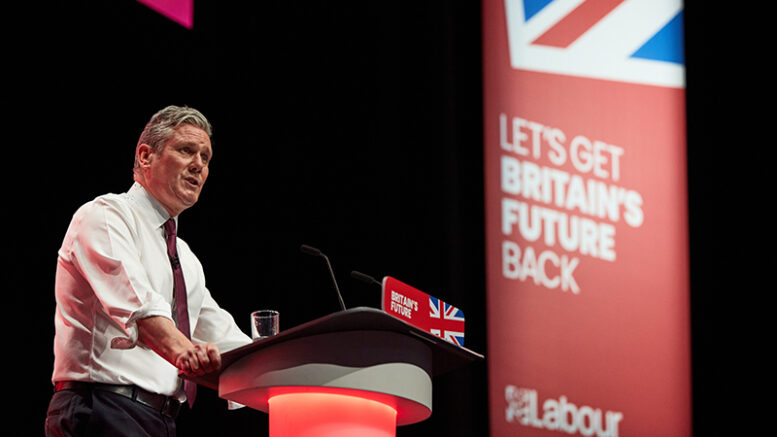Sir Keir Starmer has just unveiled the Labour Party’s much-anticipated manifesto, detailing key policies for a future government, with significant focus on the housing sector.
Major housing overhaul
Labour plans to generate £8.6 billion through new taxes targeting overseas property investors, private schools, and non-doms. The manifesto pledges a transformative approach to housing, aiming to aid first-time buyers in getting onto the property ladder. The party has committed to developing 1.5 million homes, including the “biggest increase in social and affordable housebuilding in a generation” by utilising “poor quality” green belt land.
To achieve a home ownership target of 70%, Labour proposes a new mortgage guarantee scheme that enables buyers to purchase new builds with just a 5% deposit. The party also supports advancing the Renters (Reform) Bill, which includes the abolition of Section 21 evictions.
Strengthening housing standards and affordability
Labour’s 125-page manifesto outlines “decisive action” to enhance building safety with new regulations and promises to review protections for leaseholders, who often face high service charges and ground rents. The party aims to tackle “unregulated and unaffordable” ground rent charges and “unfair” maintenance costs. Furthermore, Labour intends to end leasehold properties, referring to them as “fleecehold”, and will permit renters to challenge unreasonable rent increases and improve rental standards.
Simon Brown, CEO of Landmark Information Group, remarked, “We welcome the scale of Labour’s ambitions, but they have a job on their hands to quickly get to grips with the UK’s intricate and often highly fragmented planning system.”
Environmental sustainability in housing
Labour also pledges to reduce standing charges, double investment to upgrade the energy efficiency of homes, and introduce higher efficiency standards for rented properties. They assure that no one will be forced to remove their boiler, emphasising that green progress can save money rather than increasing costs.
Simon Brown highlighted the environmental aspect, saying, “The UK’s built environment is responsible for around 40% of UK carbon emissions and 16% of these arise from our homes, due to the age of the UK’s housing stock and poor insulation. Despite this, sustainability and climate change issues relating to housing are too often overlooked.”
Nathan Emerson, CEO of Propertymark, commented, “Pledges to reform the planning system, commit to a brownfield-first approach, making the private rental sector more energy efficient, and a commitment to build 1.5 million new homes over the next parliamentary term are more than welcome.”
Ben Beadle, chief executive of the National Residential Landlords Association, noted, “All of the main parties are committed to ending section 21. What matters is ensuring the replacement system works, and is fair, to both renters and responsible landlords.”
Labour’s housing manifesto sets ambitious goals for transforming the UK’s housing sector, with a strong focus on increasing home ownership, improving rental conditions, and promoting environmental sustainability. The implications of these policies could lead to significant changes in the housing market, benefiting both buyers and renters. However, the success of these initiatives will depend on effective implementation and cooperation from all stakeholders in the property industry.






